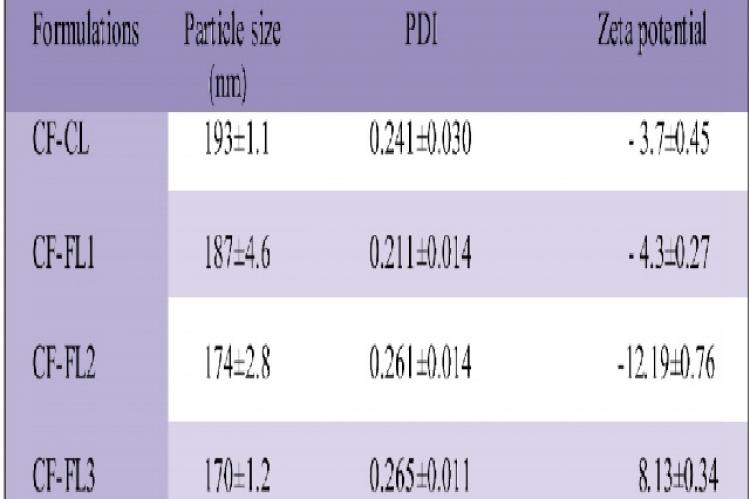The aim of this work was to evaluate the charged liposomes containing sodium cholate to produce positively and negatively flexible liposomes in comparison to conventional liposomes. The effect of these charged flexible liposomes on the in vitro transdermal delivery of carboxyfluorscein (CF) was investigated. All of the tested liposomes were characterized in terms of size distribution, zeta potential and vesicle stability. The influence of these liposomes on the in vitro rat skin deposition of CF was studied by in vitro Franz diffusion cell experiment. The results showed that all of the investigated liposomes had almost small particle size range from 170 to 193 nm with low polydispersity index (PDI<0.3). All liposomal formulations exhibited negative zeta potential except cationic liposomes had positive zeta potential with proper drug entrapment efficiency and stability. In vitro skin deposition data showed that, flexible liposomes gave significant deposition of CF on the skin compared to conventional liposomes. Moreover, the cationic charged flexible liposomes, prepared with stearyl amine (SA), were also able to deliver a higher amount of CF. These results suggested that the hydrophilic CF delivery to the skin was strictly correlated to the vesicle composition.
View:
- PDF (1.23 MB)


